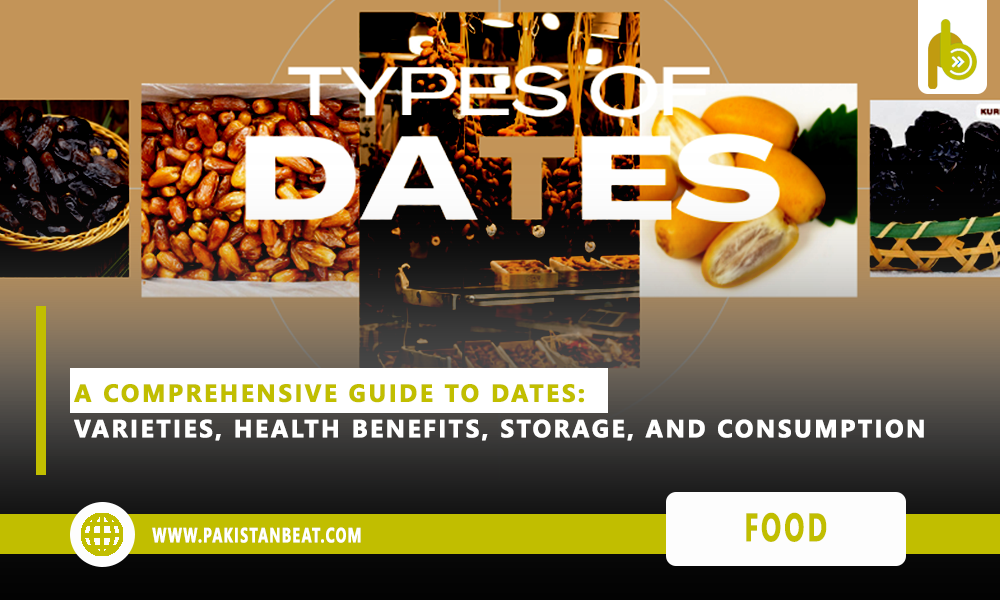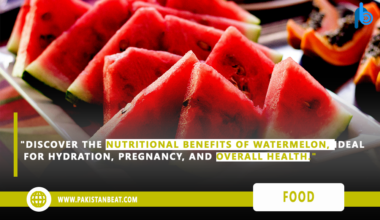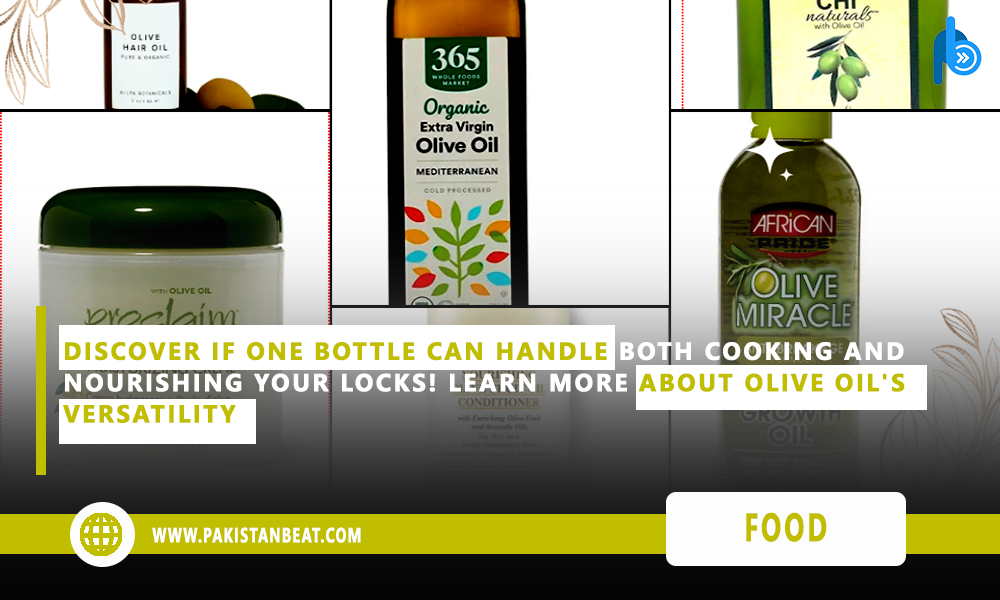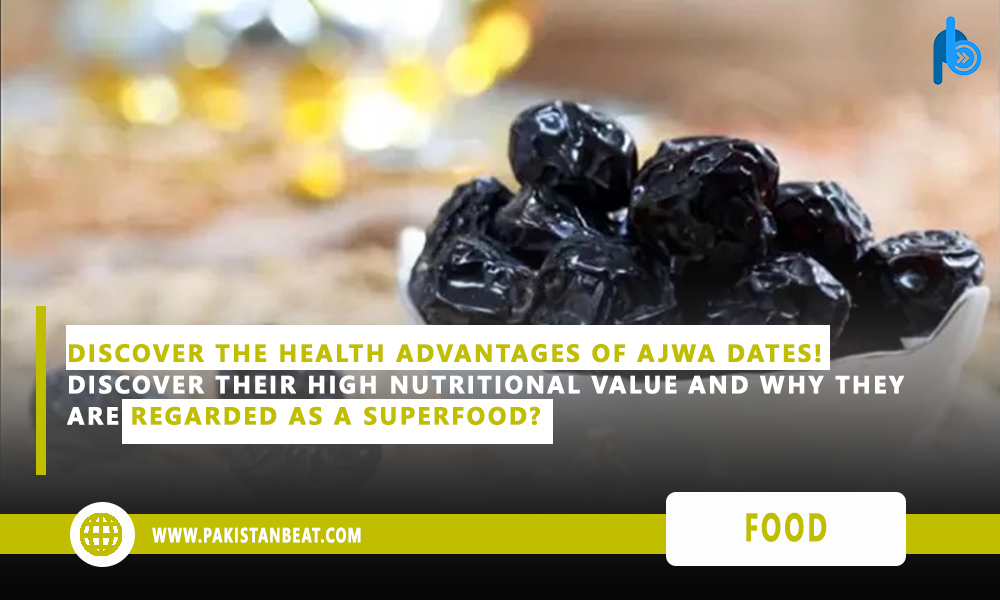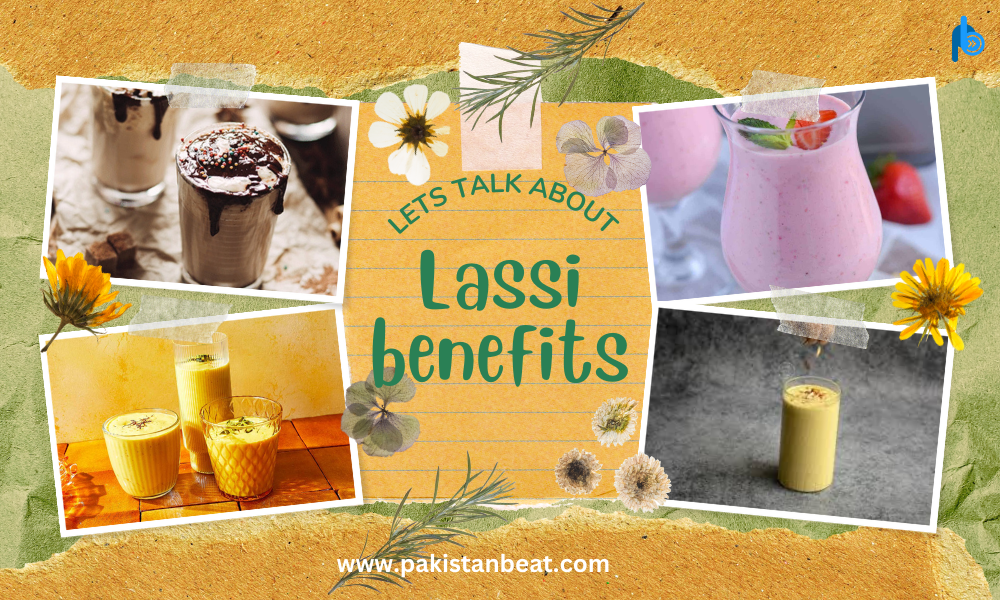Varieties, Health Benefits, Storage, and Consumption
In the realm of fruits, dates hold a distinguished place, revered not just for their delectable sweetness but also for their multifaceted health benefits. As a writer deeply engrossed in the study and appreciation of nature’s bounties for three decades, I’ve come to admire the date palm’s offering. This article embarks on a journey through the types of dates, their health benefits, the best ways to store them, and how to incorporate them into our diets. Today, let’s delve into the world of dates—a fruit as ancient as time, yet as relevant as ever. Within these sweet gems lie secrets to wellness, culinary versatility, and timeless allure. Delving into the realm of dates not only uncovers a world rich in flavour and texture but also brings to light the remarkable health benefits these fruits offer. With over 30 years of experience in food writing, I’ve seen trends come and go, but the timeless appeal of dates remains unwavering. From the luxurious sweetness of Medjool to the delicate succulence of Sukkari, each variety of date has its unique charm. Let’s embark on a journey through the world of dates, exploring types of dates, health benefits, storage tips, and culinary uses.
Diverse Delights: The Types of Dates
Dates, the fleshy, sweet fruit of the date palm, come in over a thousand varieties, each with its unique taste and texture. Among these, a few stand out for their exceptional quality and taste. Dates, the fruit borne from the date palm tree, come in many varieties, each with its unique taste, texture, and culinary uses. Let’s explore some of the most popular ones.
Medjool Dates
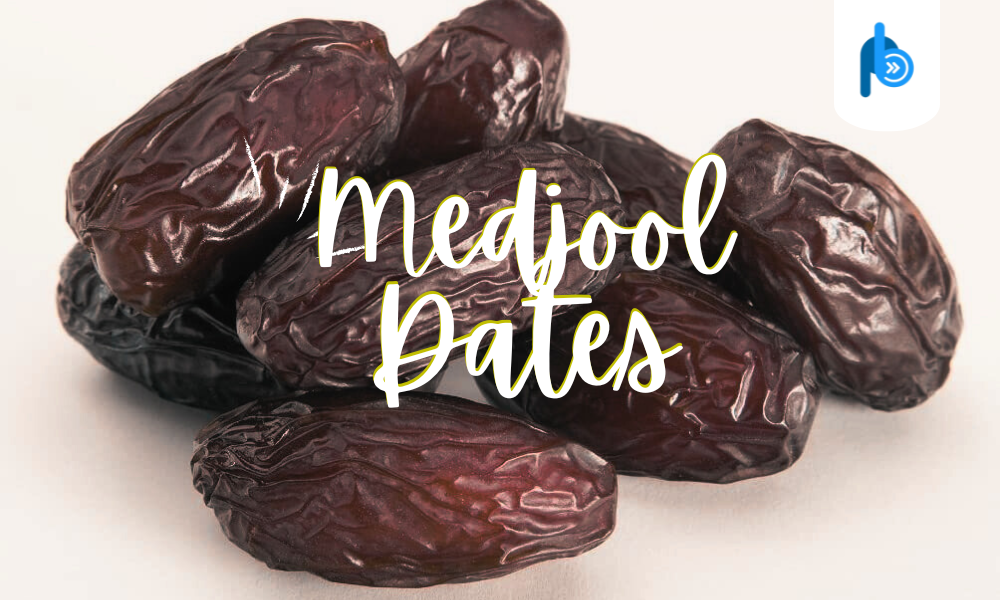
Often referred to as the “king of dates,” Medjool dates are prized for their large size, soft texture, and rich caramel-like sweetness. They’re a versatile culinary ingredient and a powerhouse of nutrition.
Ajwa Dates
Often referred to as the holy date, Ajwa dates are a soft, dry variety of date fruit from Saudi Arabia. They are notably dark in colour and have a rich, smooth texture.Hailing from Saudi Arabia, Ajwa dates are small, dark, and have a distinctively soft, fruity flavour. They are highly revered in Islamic culture for their medicinal properties.
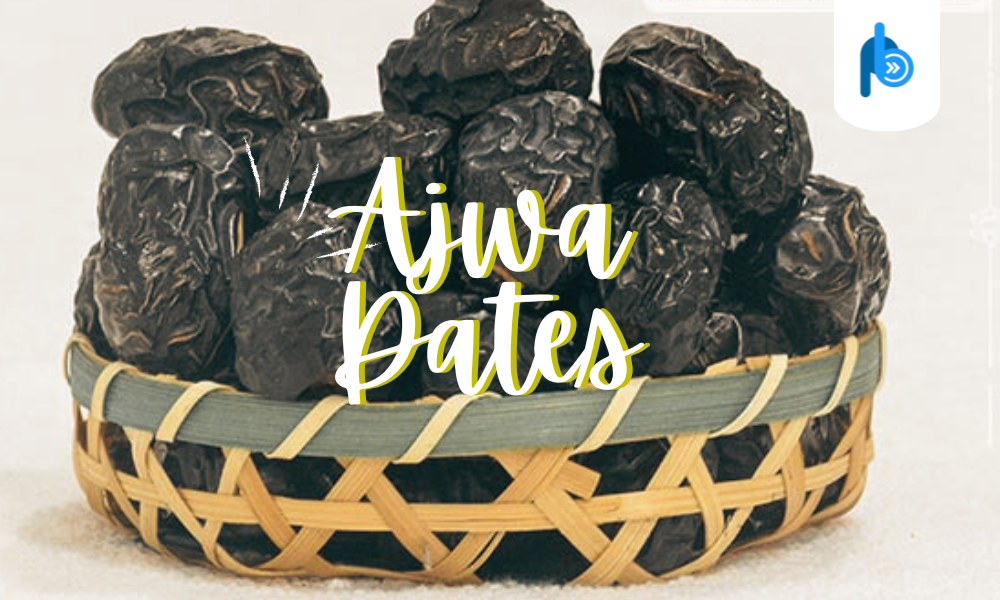
Deglet Noor Dates:
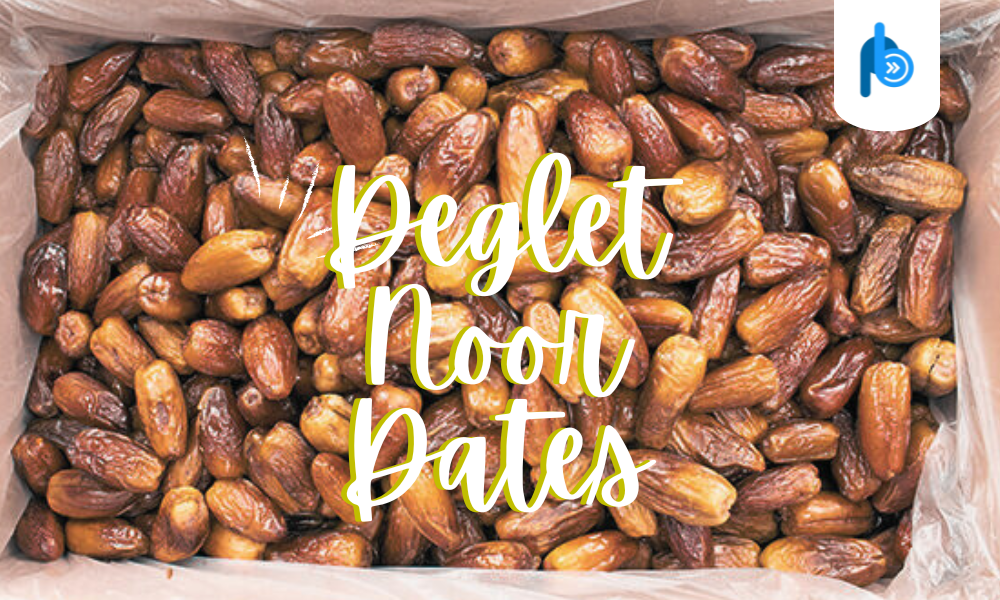
Known as the “date of light,” these dates are semi-dry and have a translucent golden hue. They offer a delicate, less intense sweetness compared to other varieties.
Barhi Dates:
These are fresh, yellow, and round dates, known for their soft, creamy texture and sweet flavour, resembling coconut in its freshness Unique for their round shape and buttery flavour, Barhi dates can be enjoyed in both their fresh ‘khalal’ stage, where they are crisp and sweet, and their more familiar soft, ripe form.
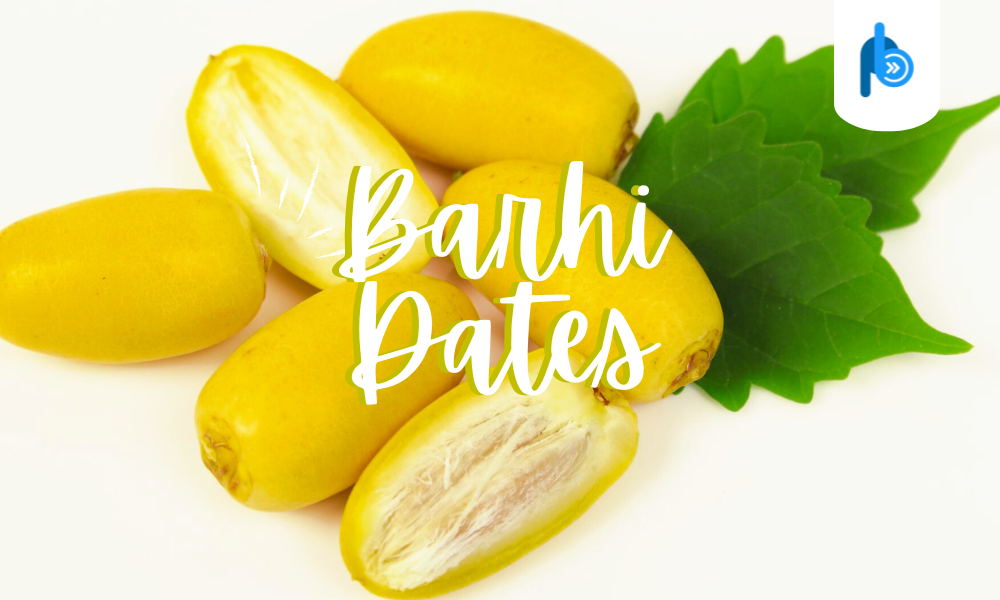
Sukkari Dates:
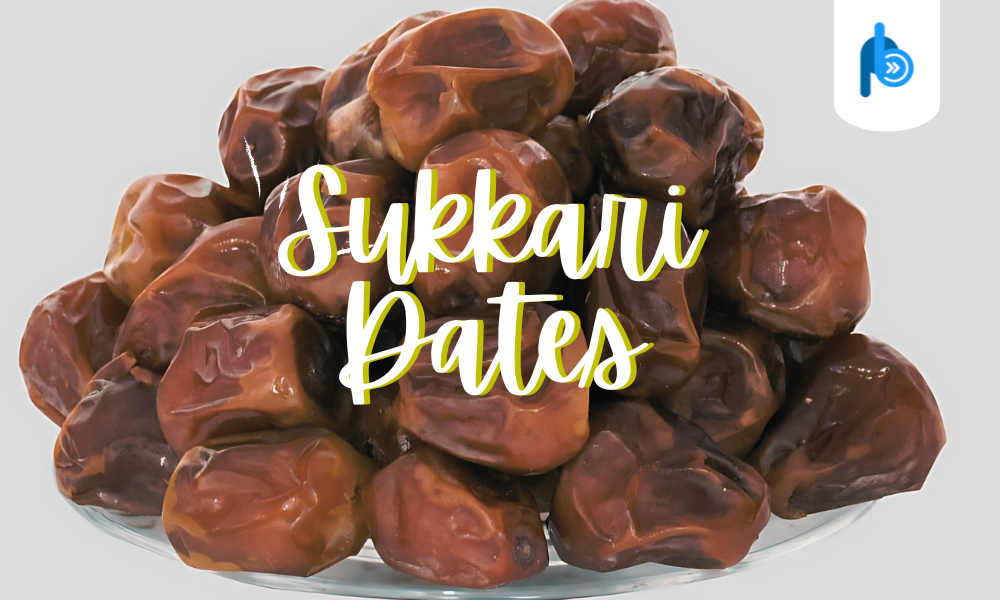
Renowned for their confectionary sweetness, Sukkari dates are incredibly soft and have a creamy texture. They are one of the most preferred dates for their high-quality and sweet, caramel-like taste.
Kholas Dates:
Kholas dates are a favourite in the Arabian Gulf region, known for their dark brown colour, medium size, and a perfect balance between sweetness and richness.
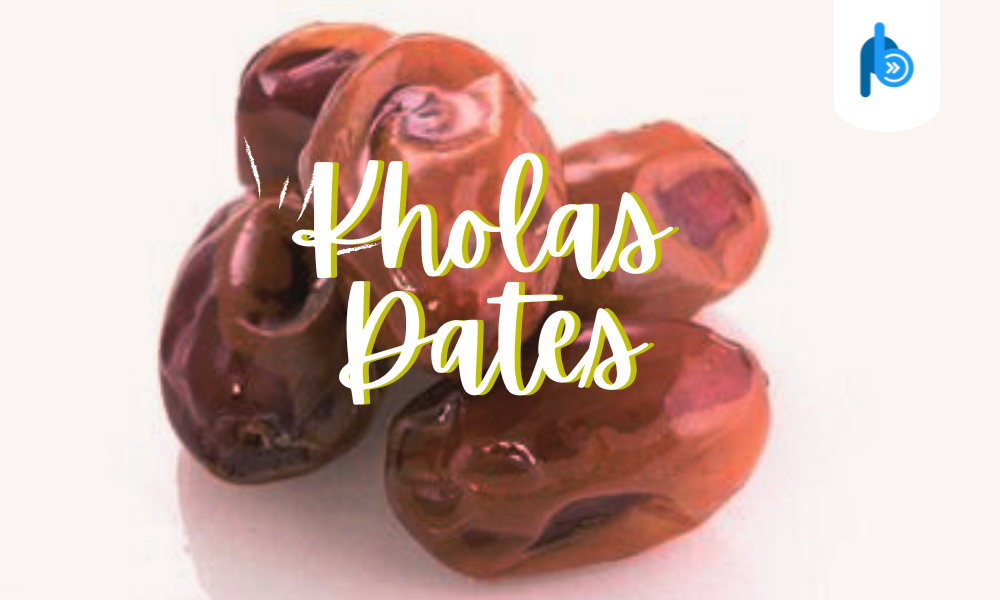
Zahidi Dates:
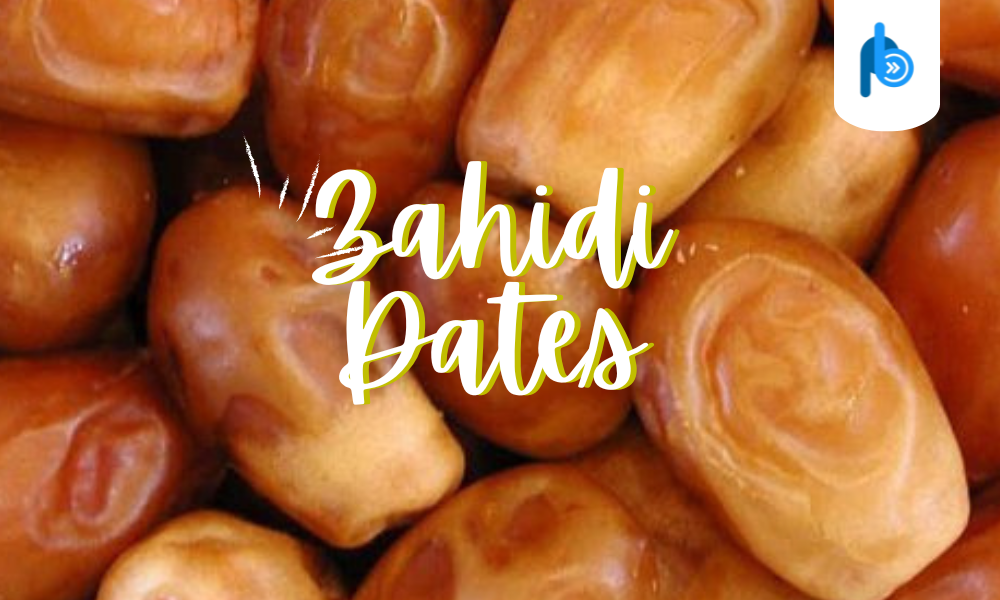
Zahidi dates are a bit drier and have a nutty flavour, making them excellent for those who prefer a less sweet date. They are great for snacking or using in recipes that call for a subtle sweetness.
Unveiling the Health Benefits
The consumption of types of dates, offers a treasure trove of health benefits. They are a great source of vitamins, minerals, energy, and fibre. Here are a few compelling reasons to include dates in your diet.
Nutrient-Rich: Dates are packed with vital nutrients. They are an excellent source of potassium, magnesium, vitamin B6, iron and fibre. Dates offer a healthy energy boost. They contain essential nutrients like potassium, magnesium, vitamin B6, and iron.
Natural Sweetener: With their naturally high content of sugars such as fructose, dates are an ideal way to sweeten dishes without the need for refined sugars.
Digestive Health: The fibre in dates helps to promote bowel regularity and healthy digestion. The high fibre content in dates helps to prevent constipation and promotes regular bowel movements, contributing to digestive health.
Energy Booster: Dates provide a quick energy boost, making them a perfect snack for athletes or anyone in need of a lift during a sluggish afternoon.
Enhances Heart Health: Dates are known to support heart health by helping to reduce blood pressure and cholesterol levels, thanks to their potassium content and fibre.
Supports Pregnancy Their high nutrient profile, especially folate and iron, makes dates a beneficial snack for pregnant women, aiding in the baby’s growth and development.
The Art of Storing different types of Dates
To maximise the shelf life and preserve the freshness of types of dates, proper storage is key. Here are some best practices for storing dates: How long can I store dates? Yes, dates can be frozen in an airtight container, which can extend their freshness for up to a year or more.
Properly stored in an airtight container, dates can last for months in the refrigerator and even longer when frozen.
Room Temperature: For short-term storage, keep dates in a cool, dry place in an airtight container, where they can last for several weeks.
Refrigeration: For extending their freshness, dates can be stored in the refrigerator in a sealed container, where they can last for up to six months.
Freezing: For long-term preservation, dates can be frozen. Place them in airtight containers or freezer bags, and they can last up to a year, retaining much of their flavour and texture.
Delightful Ways to Eat different types of Dates
Dates are incredibly versatile and can be enjoyed in numerous ways, from eating them plain as a snack to incorporating them into various dishes. Here are a few suggestions: As a Snack
Enjoy the types of dates as they are for a quick, nutritious snack. Their natural sweetness is a healthier alternative to processed sugar cravings.
Stuffed Dates: Pit the dates and fill them with nuts or cheese for a delightful treat.
Date Smoothies: Blend dates with milk (or a milk alternative), bananas, and a dash of cinnamon for a nutritious smoothie.
Baking with Dates: Dates can be chopped and added to muffins, cakes, and bread for natural sweetness and moisture.
Date Syrup: Blend dates with water to create a sweet, thick syrup perfect for drizzling over pancakes or adding to beverages.
In Recipes
Dates can be used in baking, smoothies, and even savoury dishes, adding sweetness and depth of flavour.
With Other Foods
Pair dates with nuts, cheese, or wrap them in bacon for a delightful combination of flavours and textures.
Sukkari dates differ from other varieties:Sukkari dates stand out for their incredibly sweet, creamy taste and smooth texture, making them a favourite among those who love a sweeter fruit.
Zahidi dates unique. Zahidi dates have a firmer texture and a nuttier flavour compared to other varieties, appealing to those who prefer a subtler sweetness.
Medjool dates different from other types of dates; Medjool dates are larger, softer, and sweeter than many other varieties, making them particularly prized for both eating raw and culinary use.
Dates for diabetes: While different types of dates are natural and contain sugar, they also have a low to medium glycemic index, meaning they do not cause a significant spike in blood sugar levels when consumed in moderation.
Dates eating during weight loss: in moderation, dates can be a part of a weight loss diet. Their high fibre content can help you feel fuller longer, reducing overall calorie intake.While dates are natural and contain sugar, they also provide fibre and nutrients. Those monitoring sugar intake should enjoy dates in moderation and consult with a healthcare provider.
How can dates support heart health: Different types of dates are rich in potassium and fibre, which can help reduce blood pressure and cholesterol levels, supporting overall heart health.
Conclusion:
The exploration of dates, from their types to their numerous health benefits, best storing methods, and versatile culinary uses, reveals the depth of nature’s generosity. Dates are not merely a fruit but a bridge to history, a testament to nature’s bounty, and a versatile ingredient that enriches our diets in myriad ways. As we continue to discover and innovate, let the humble date remind us of the simple, yet profound joys of natural foods.
This condensed article touches on the key points around the focus and supporting keywords provided. Expanding each section with more detailed content, including nutritional information, scientific research, personal anecdotes, or detailed recipes, would help reach the targeted word count while providing valuable information to the reader.
